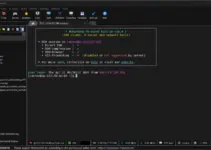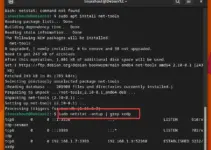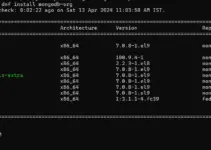To print an array in Rust, you can use the println! macro, which is a built-in macro in the Rust standard library. The println! macro takes a format string and a list of arguments, and prints the formatted string to the standard output.
Here is an example of how you can use the println! macro to print an array in Rust:
let arr = [1, 2, 3, 4, 5];
println!("Array: {:?}", arr);In this example, the println! macro is used to print the array arr to the standard output. The {:?} placeholder in the format string indicates that the argument should be formatted using the Debug trait, which is a built-in trait in Rust that provides a default formatting for printing the value of a variable.
Alternatively, you can use a for loop to iterate over the elements of the array and print them one by one. Here is an example:
let arr = [1, 2, 3, 4, 5];
println!("Array: [");
for i in 0..arr.len() {
println!("{}", arr[i]);
if i < arr.len() - 1 {
print!(", ");
}
}
println!("]");
In this example, the println! macro is used inside a for loop to print the elements of the array arr to the standard output. The loop iterates over the elements of the array and prints each element, followed by a comma and a space, except for the last element, which is printed without the comma and space.
Note that in both examples, the println! macro automatically adds a newline character after each string that is printed, which causes the output to be printed on multiple lines. You can use the print! macro instead of println! if you want to print the output on a single line.
How to Create Arrays in Rust?
To create an array in Rust, you can use the [T; N] syntax, where T is the type of the elements in the array and N is the length of the array. Here is an example of how you can use this syntax to create an array:
let arr: [i32; 5] = [1, 2, 3, 4, 5];In this example, the arr variable is declared as an array of i32 (32-bit signed integer) values with a length of 5. The array is initialized with the values 1, 2, 3, 4, and 5.
Alternatively, you can create an array by using the array! macro, which is a built-in macro in the Rust standard library. This macro takes the type of the elements and a list of values and creates an array with the specified values. Here is an example:
let arr = array![1, 2, 3, 4, 5];
In this example, the array! macro is used to create an array of i32 values with the values 1, 2, 3, 4, and 5. The type of the elements in the array is inferred from the values, so you don’t need to specify it explicitly.
You can also create an empty array with a specified length by using the Default trait, which is a built-in trait in Rust that provides a default value for a type. The Default trait is implemented for many types in the Rust standard library, including arrays. Here is an example:
let arr: [i32; 5] = Default::default();
In this example, the arr variable is declared as an array of i32 values with a length of 5. The Default::default() expression is used to create an array with the default value for i32, which is 0.
Note that in Rust, arrays are fixed-size, meaning that once an array is created, it cannot be resized. This means that you need to specify the length of the array when you create it, and you cannot add or remove elements from the array after it has been created.
How to Declare and Initialize Arrays in Rust?
To declare and initialize an array in Rust, you can use the let keyword followed by a variable name, a colon (:), the type of the elements in the array, and an equal sign (=), followed by a list of values enclosed in square brackets ([]). Here is an example of how you can do this:
let arr: [i32; 5] = [1, 2, 3, 4, 5];
In this example, the arr variable is declared as an array of i32 (32-bit signed integer) values with a length of 5. The array is initialized with the values 1, 2, 3, 4, and 5.
Alternatively, you can use the array! macro to declare and initialize an array in a single step. The array! macro takes the type of the elements and a list of values and creates an array with the specified values. Here is an example:
let arr = array![1, 2, 3, 4, 5];
In this example, the array! macro is used to create an array of i32 values with the values 1, 2, 3, 4, and 5. The type of the elements in the array is inferred from the values, so you don’t need to specify it explicitly.
You can also create an empty array with a specified length by using the Default trait, which is a built-in trait in Rust that provides a default value for a type. The Default trait is implemented for many types in the Rust standard library, including arrays. Here is an example:
let arr: [i32; 5] = Default::default();
In this example, the arr variable is declared as an array of i32 values with a length of 5. The Default::default() expression is used to create an array with the default value for i32, which is 0.
Note that in Rust, arrays are fixed-size, meaning that once an array is created, it cannot be resized. This means that you need to specify the length of the array when you create it, and you cannot add or remove elements from the array after it has been created.





